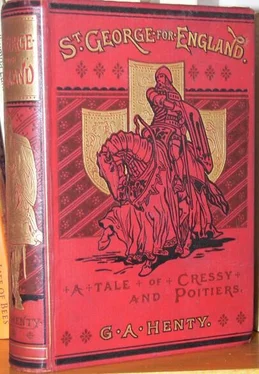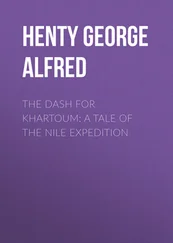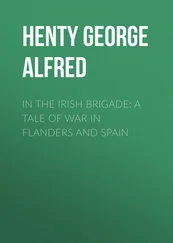G. Henty - St. George for England - A Tale of Cressy and Poitiers
Здесь есть возможность читать онлайн «G. Henty - St. George for England - A Tale of Cressy and Poitiers» весь текст электронной книги совершенно бесплатно (целиком полную версию без сокращений). В некоторых случаях можно слушать аудио, скачать через торрент в формате fb2 и присутствует краткое содержание. Жанр: Старинная литература, на английском языке. Описание произведения, (предисловие) а так же отзывы посетителей доступны на портале библиотеки ЛибКат.
- Название:St. George for England: A Tale of Cressy and Poitiers
- Автор:
- Жанр:
- Год:неизвестен
- ISBN:нет данных
- Рейтинг книги:3 / 5. Голосов: 1
-
Избранное:Добавить в избранное
- Отзывы:
-
Ваша оценка:
- 60
- 1
- 2
- 3
- 4
- 5
St. George for England: A Tale of Cressy and Poitiers: краткое содержание, описание и аннотация
Предлагаем к чтению аннотацию, описание, краткое содержание или предисловие (зависит от того, что написал сам автор книги «St. George for England: A Tale of Cressy and Poitiers»). Если вы не нашли необходимую информацию о книге — напишите в комментариях, мы постараемся отыскать её.
St. George for England: A Tale of Cressy and Poitiers — читать онлайн бесплатно полную книгу (весь текст) целиком
Ниже представлен текст книги, разбитый по страницам. Система сохранения места последней прочитанной страницы, позволяет с удобством читать онлайн бесплатно книгу «St. George for England: A Tale of Cressy and Poitiers», без необходимости каждый раз заново искать на чём Вы остановились. Поставьте закладку, и сможете в любой момент перейти на страницу, на которой закончили чтение.
Интервал:
Закладка:
"That is true enough," the Black Prince said with a sigh. "Since I was a boy I have ever been harassed with creditors; and though all Aquitaine is mine, I verily believe that there is not a man in my father's dominions who is so harassed and straitened for money as I."
"And yet," Walter said, smiling, "no sooner do you get it than you give it away."
"Ah!" the prince laughed, "I cannot deny it. It is so much pleasanter to give than to pay that I can never find heart to balk myself. I am ever surrounded by suitors. Some have lost estates in my cause, others have rendered brilliant services in the field, some have burdened themselves with debts to put their retainers in arms—all have pleas to urge, and for the life of me I cannot say them nay. I trust, though," he added more seriously, "that Don Pedro will fulfill his promises to pay my army. I have bound myself to my soldiers for their wages, besides advancing large sums to Pedro, and if he keeps not his engagements I shall indeed be in a sore strait."
"There is one thing," Walter said; "if he fail to keep his promises, we will not fail to oblige him to do so. If we win a kingdom for him, we can snatch it from him again."
"We have not won it yet," the prince said.
"We will do so to-morrow," Walter rejoined confidently. "I hope the fortunes of the day may bring me face to face with Du Guesclin. I am thrice as strong as when I fought at Cressy, and I should like to try my hand against this doughty champion."
The next morning the two armies prepared for battle, the Black Prince dividing his army as before. The divisions were commanded as in the passage of the Pyrenees, and each numbered ten thousand men.
Don Henry had also divided his force in three parts. In the first division, commanded by Du Guesclin, were four thousand veteran French knights and men-at-arms with eight thousand foot soldiers; the second was led by the prince's brother, Don Tillo, with sixteen thousand horse; while he himself commanded the third, in which were a multitude of soldiers, making up the gross total of one hundred thousand men.
As on the night preceding the battle of Poitiers, the English army had lain down supperless. Soon after midnight the trumpets sounded, and the troops soon moved forward. At sunrise the prince and his forces reached the summit of a little hill, whence was visible the approaching host of Spain. The first division, under the Duke of Lancaster and Lord Chandos, immediately quickened its pace and charged the division of Du Guesclin, which received it with great steadiness, and a desperate conflict ensued. The Black Prince charged the division of Don Tillo, which gave way at the first attack, and its commander, with two thousand horse, at once fled. The remainder of the division resisted for some time, but was unable to withstand the steady advance of the English, who without much difficulty dispersed and scattered it from the field. The King of Majorca now joined his division with that of the Black Prince, and the two advanced against the great division led by Don Henry.
The Spanish slingers opened upon the advancing force and for a time annoyed them greatly, but when the English archers arrived within bow-shot and opened fire they speedily dispersed the slingers, and the men-at-arms on both sides advanced to the attack. The conflict was long and desperate, and both sides fought with great gallantry and determination. Don Pedro—who, although vicious and cruel, was brave—fought in the ranks as a common soldier, frequently cutting his way into the midst of the Spaniards, and shouting to Don Henry to cross swords with him. Henry on his part fought with great valor, although, as he had the burden of command upon him, he was less able to distinguish himself by acts of personal prowess. Though fighting in the thickest of the press, he never lost his grasp of the general purpose of the battle. Three times, when his troops wavered before the assaults of the Black Prince and his knights, he rallied them and renewed the fight.
While this battle was raging, a not less obstinate fight was proceeding between the divisions of Lancaster and Du Guesclin. For a long time victory was doubtful, and indeed inclined toward the side of the French. The ranks of both parties were broken, and all were fighting in a confused mass, when, in the midst of the mêlée , a body of French and Spaniards poured in upon the banner of Chandos. He was struck to the ground, and a gigantic Castilian knight flung himself upon him and strove to slay him as he held him down. Chandos had lost sword and battle-ax, but drawing his dagger, he held with one hand his opponent's sword-arm, and at last, after repeated strokes with his dagger, he found an undefended part of his armor and pierced him with his dagger to the hilt. The Spaniard relaxed his hold, and Chandos, throwing him off, struggled to his feet and rejoined his friends, who had thought him dead. They now fought with more enthusiasm than ever, and at last, driving back the main body of the French knights, isolated a body of some sixty strong, and forced them to surrender. Among these were Du Guesclin himself, the Marshal d'Audenham, and the Bigue de Vilaines.
As these were the leaders of the division, the main body lost spirit and fought feebly, and were soon completely routed by Lancaster and Chandos. These now turned their attention to the other part of the field, where the battle was still raging, and charged down upon the flank of Don Henry's army, which was already wavering. The Spaniards gave way at once on every side, and ere long the whole were scattered in headlong rout, hotly pursued by the English. The greater portion fled toward the town of Najarra, where they had slept the previous night, and here vast quantities were slaughtered by the English and Gascons. A number of prisoners were taken and the palace and town sacked. The pursuit was kept up the whole day, and it was not until evening that the leaders began once more to assemble round the banner of the Prince of Wales. Among the last who arrived was Don Pedro himself. Springing from his charger he grasped the hand of the Prince of Wales, thanking him for his victory, which he felt would restore him to his throne.
"Give thanks and praise to God, and not to me," the prince replied, "for from him, and not from me, you have received victory."
About eight thousand men fell in the battle, the loss of the English, French, and Spaniards being nearly equal; but many thousands of the latter fell in the pursuit, and as many more were drowned in endeavoring to cross the river Ebro. Don Henry escaped after fighting till the last, and reaching the French territory in safety took refuge in the papal court of Avignon.
Upon the morning after the battle Don Pedro requested the Black Prince to give him up all the Castilian prisoners, in order that he might put them to death. The prince, however, was always opposed to cruelty, and asked and obtained as a boon to himself that the lives of all the Spanish prisoners, with the exception of one whose conduct had been marked with peculiar treachery, should be spared, and even induced Pedro to pardon them altogether on their swearing fealty to him. Even Don Sancho, Pedro's brother, who had fought at Najarra under Don Henry, was received and embraced by Pedro at the request of the Prince of Wales. The city of Burgos at once opened its gates, and the rest of the country followed its example, and resumed its allegiance to Pedro, who remounted his throne without further resistance.
As Walter had fought by the side of the Black Prince his desire to cross swords with Du Guesclin was not satisfied; but his valor during the day won for him the warm approbation of the prince. Opposed to them were many of the great companies, and these men, all experienced soldiers and many of them Englishmen, had fought with great stubbornness. Walter had singled out for attack a banner bearing the cognizance of a raven. The leader of this band, who was known as the Knight of the Raven, had won for himself a specially evil notoriety in France by the ferocity of his conduct. Wherever his band went they had swept the country, and the most atrocious tortures had been inflicted on all well-to-do persons who had fallen into their hands, to extract from them the secret of buried hoards or bonds, entailing upon them the loss of their last penny.
Читать дальшеИнтервал:
Закладка:
Похожие книги на «St. George for England: A Tale of Cressy and Poitiers»
Представляем Вашему вниманию похожие книги на «St. George for England: A Tale of Cressy and Poitiers» списком для выбора. Мы отобрали схожую по названию и смыслу литературу в надежде предоставить читателям больше вариантов отыскать новые, интересные, ещё непрочитанные произведения.
Обсуждение, отзывы о книге «St. George for England: A Tale of Cressy and Poitiers» и просто собственные мнения читателей. Оставьте ваши комментарии, напишите, что Вы думаете о произведении, его смысле или главных героях. Укажите что конкретно понравилось, а что нет, и почему Вы так считаете.












